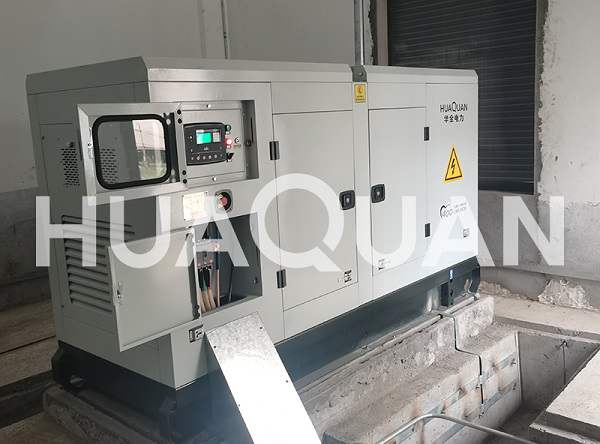
In today's agricultural production, traditional labor methods can no longer meet the demands of modern agricultural development.
Agricultural generators, as a new type of power equipment, are gradually becoming an important component of modern agriculture. With the acceleration of agricultural mechanization, the application of agricultural generators is showing an increasingly important role. This article will explore in depth the definition, types, applications, key selection points, and importance of agricultural generators in modern agricultural production.
I. Definition and Function of Agricultural Generators
Agricultural generators mainly refer to devices that provide electrical energy for agricultural production. They convert chemical or mechanical energy into electrical energy by burning fossil fuels or using renewable energy sources (such as solar and wind power). These generators not only provide power support for agricultural machinery but also ensure power supply for irrigation systems, greenhouses, refrigeration equipment, etc., ensuring the stability and efficiency of agricultural production.
In agricultural production, electricity has become an indispensable resource. Especially in modern production models, many agricultural devices require electricity to operate. The use of agricultural generators can effectively improve production efficiency and reduce labor costs. Furthermore, generators can ensure the continuity of agricultural production during periods of insufficient power supply or temporary power outages, becoming an important power source for modern agricultural development.
II. Types of Agricultural Generators
Agricultural generators can be mainly classified into the following types based on their working principle and fuel source:
1. Diesel Generators: Diesel generators are currently the most common type of agricultural generator, favored for their high power output, low fuel consumption, and low operating costs. They are suitable for powering large-scale farms, irrigation systems, and large agricultural equipment.
2. Gasoline Generators: Their smaller size makes them ideal for small-scale agricultural operations and family farms. They are easy to move and operate, suitable for short-term power needs. However, their fuel costs are relatively high, making them more suitable for small-scale production environments.
3. Solar Generators: With increasing environmental awareness, the application of solar generators in agriculture is gradually increasing. They convert solar energy into electricity, eliminating fuel costs and making them suitable for greenhouses, irrigation, and farms far from the power grid.
4. Wind Turbines: In areas with abundant wind resources, wind turbines are also an effective way to generate electricity for agriculture. They can provide a continuous supply of electricity, and when used in conjunction with other renewable energy sources, reduce dependence on fossil fuels.
5. Hybrid Generators: These generators combine the advantages of diesel, gasoline, and renewable energy, providing more flexible power solutions, especially suitable for farms with fluctuating electricity demand.
III. Applications of Agricultural Generators
Agricultural generators have a wide range of applications, mainly including the following:
Irrigation Systems: In arid regions, irrigation is an indispensable part of agricultural production. Agricultural generators can power water pumps, ensuring adequate irrigation of farmland and thus guaranteeing crop growth.
Greenhouses: Climate control within greenhouses requires significant electrical support, such as for heating, ventilation, and lighting. Agricultural generators can provide reliable power, ensuring a suitable environment within the greenhouse.
3. Agricultural Product Cold Storage: After agricultural production, timely cold chain logistics is crucial for preservation. Generators can power refrigeration equipment, helping farmers to refrigerate products promptly when market prices are high, reducing losses.
4. Agricultural Machinery: With the increasing mechanization of modern agriculture, various types of machinery require electric power. Agricultural generators can provide continuous power support for seeders, harvesters, tillers, etc., improving agricultural production efficiency.
5. Agricultural Processing: Many farms also involve processing agricultural products, which typically requires significant power. Using agricultural generators can ensure the normal operation of the production line and increase production capacity.
IV. Key Points for Purchasing Agricultural Generators
When purchasing an agricultural generator, the following points should be considered:
1. Power Requirements: Calculate the required power based on the specific equipment and usage duration, and select a generator with appropriate power. Generally, it is recommended to choose a generator with a power output greater than the required power to avoid overload.
2. Fuel Type: Choose the appropriate fuel type based on the usage environment and economic costs. Diesel generators are suitable for large-scale operations, while gasoline generators are more convenient for small-scale use.
3. Brand and After-Sales Service: Choosing a generator from a well-known brand ensures its quality and performance. At the same time, pay attention to its after-sales service to ensure convenient maintenance and parts replacement.
4. Portability: Choose a generator with appropriate weight and size based on the needs of the working environment. Portable generators are more suitable for use in remote areas.
5. Noise Level: Agricultural production environments often require quiet conditions. Different types of generators have different noise levels; choosing a generator with lower noise levels can effectively reduce the impact on the surrounding environment.
The Importance of Agricultural Generators in Modern Agriculture
Agricultural generators are not only the power source for modern agricultural production but also crucial tools for achieving high efficiency, intelligence, and environmental friendliness in agriculture. They enable farmers to be more flexible in agricultural production, improving efficiency and reducing costs. Furthermore, with continuous technological advancements, the technical level of agricultural generators is constantly improving, and in the future, they may integrate more advanced technologies such as the Internet of Things and big data to achieve intelligent management.
In addition, agricultural generators play a positive role in addressing climate change and improving the sustainability of agricultural production. By using renewable energy to generate electricity and reducing the use of fossil fuels, not only can greenhouse gas emissions be reduced, but also contributions can be made to the sustainable development of agriculture.
In conclusion, agricultural generators are important tools for promoting the development of modern agriculture. Their diverse applications and flexible selection methods make agricultural production more efficient and environmentally friendly. As society increasingly values sustainable agriculture, the prospects for agricultural generators will become increasingly broad, making them one of the important driving forces for future agricultural development.
